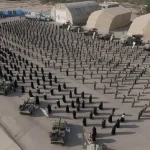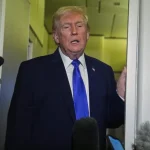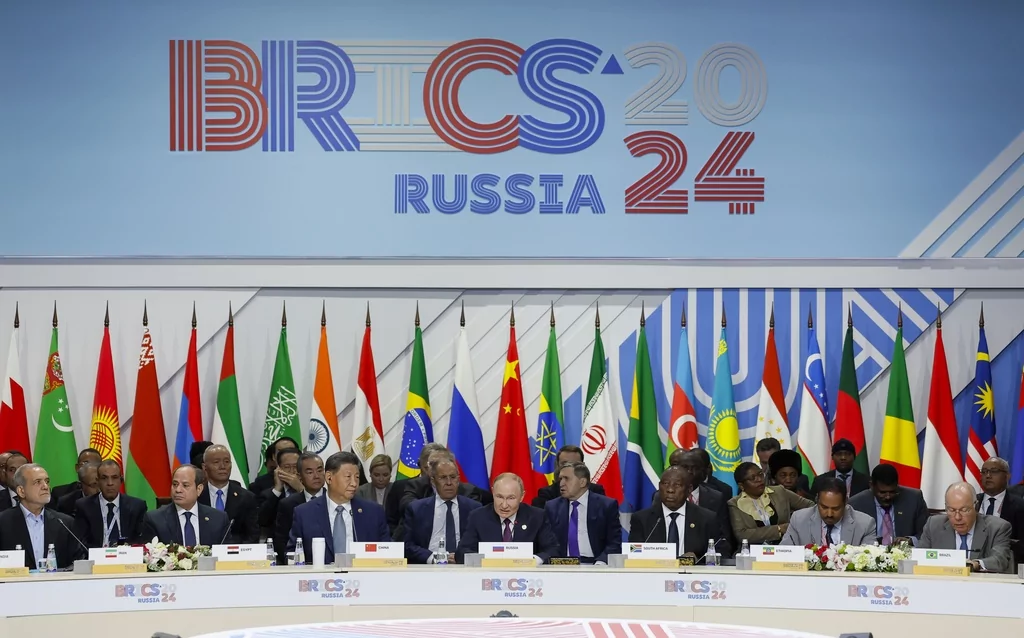
More than a dozen countries from around the world joined the BRICS bloc this week — a major augmentation of the most powerful international alliance opposing Western powers.
The summit, held in Kazan, Russia, gathered 20 heads of state, over a dozen other diplomatic envoys, and even the secretary-general of the United Nations for a conference that further solidified President Vladimir Putin’s network of influence.
Thirteen nations were adopted as “partners” of the alliance on Thursday, the final day of the summit. The designation is short of complete membership but comes with the prospect of full admission in the future.
The following nations were announced as partner countries within the alliance: Algeria, Belarus, Bolivia, Cuba, Indonesia, Kazakhstan, Malaysia, Nigeria, Thailand, Turkey, Uganda, Uzbekistan, and Vietnam.

Partner countries are allowed representation at select BRICS events and participation in some of the bloc’s international initiatives. Full membership in the alliance grants voting rights on BRICS affairs and full rights to participate in all BRICS events.
The following nations are already full members of the BRICS bloc: Brazil, Russia, India, China, South Africa, the United Arab Emirates, Iran, Egypt, and Ethiopia.
Belarus, Russia’s closest geopolitical ally and a quasi-satellite state, is among the countries that have expressed enthusiasm for gaining full membership as soon as possible.
“We fully share the BRICS philosophy,” Belarusian President Aleksandr Lukashenko said, according to a translation from the Moscow Times. “Belarus is coming to you with specific ideas and projects. We’re ready to become an active member of the union.”
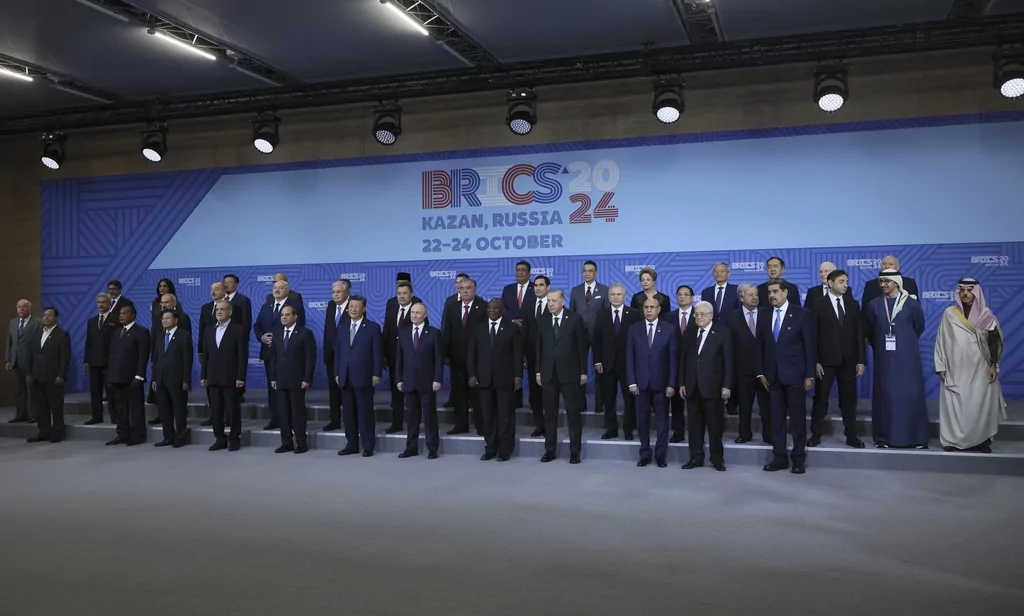
Saudi Arabia, while represented at the summit, was not adopted as a member or a partner. The Middle Eastern kingdom was extended an invitation alongside Egypt, Ethiopia, Iran, and the UAE earlier this year but declined to accept.
If Saudi Arabia were to join BRICS, member nations would control close to half of the world’s oil supplies.
United Nations Secretary-General Antonio Guterres delivered remarks at the BRICS summit on Thursday — a decision that raised eyebrows as the head of the U.N. was photographed smiling in conversation with Putin.
Guterres praised the summit for fostering greater international cooperation on global issues, saying, “No single group and no single country can act alone or in isolation. It takes a community of nations, working as one global family, to address global challenges.”
The U.N. chief only briefly mentioned Russia’s invasion of Ukraine in passing, saying “We need peace in Ukraine. A just peace in line with the U.N. Charter, international law, and General Assembly resolutions.”
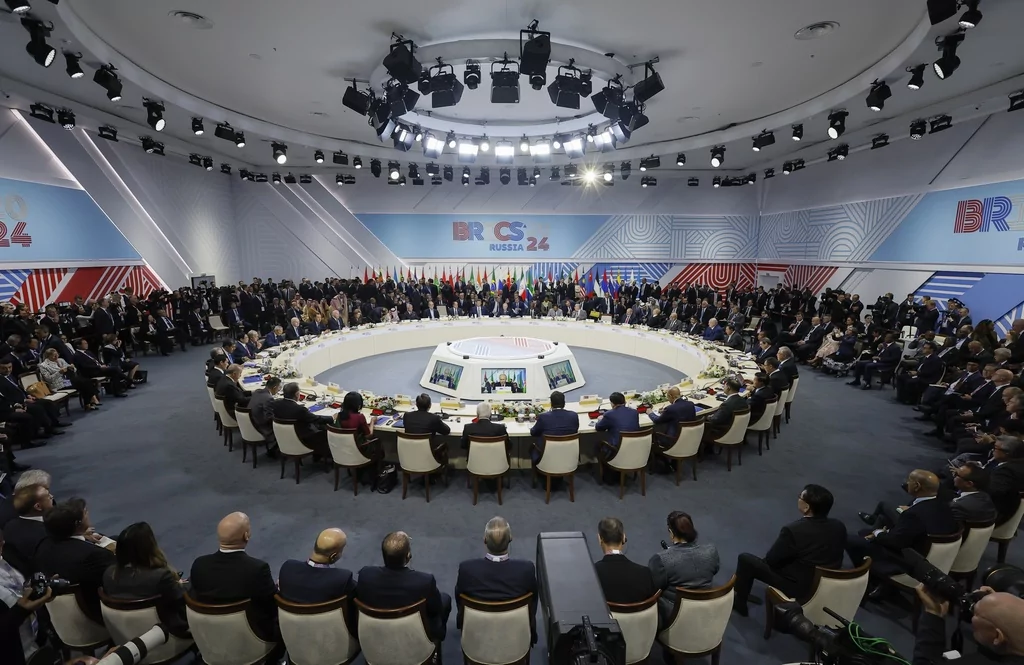
In the same speech, he similarly advocated peace in Gaza, Lebanon, Sudan, and elsewhere.
Putin preemptively undercut Guterres’s remarks, acknowledging in a speech earlier in the day that nations opposed to Russia “aim to deal our country a strategic defeat.”
“I will say directly that these are illusory calculations that can be made only by those who do not know Russia’s history,” the Russian president said.
Ukrainian President Volodymyr Zelensky alluded to the U.N. chief’s BRICS speech in Kazan during an address at the International Crimea Platform summit on the same day, pointing out that Oct. 24 is recognized as United Nations Day.
CLICK HERE TO READ MORE FROM THE WASHINGTON EXAMINER
“I would like to remind the entire international bureaucracy and political leaders that today is U.N. Day worldwide, not somewhere in Kazan,” Zelensky said.
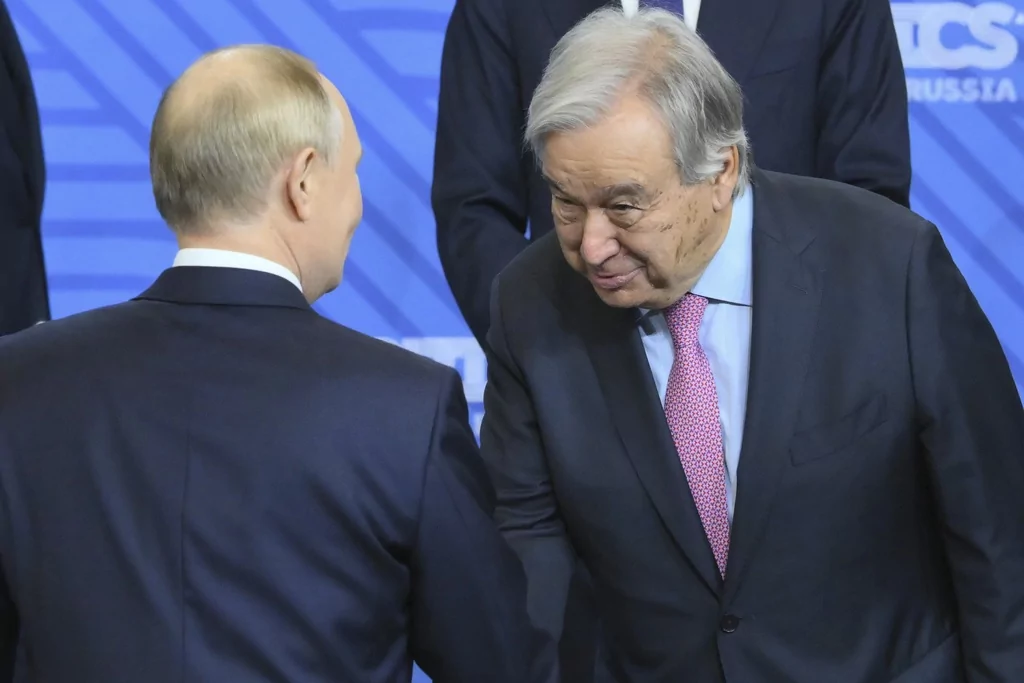
The Ukrainian Foreign Ministry previously criticized Guterres’s attendance at the BRICS summit, pointing out that the secretary-general had declined its invitation to the Global Peace Summit in Switzerland.



